Potu
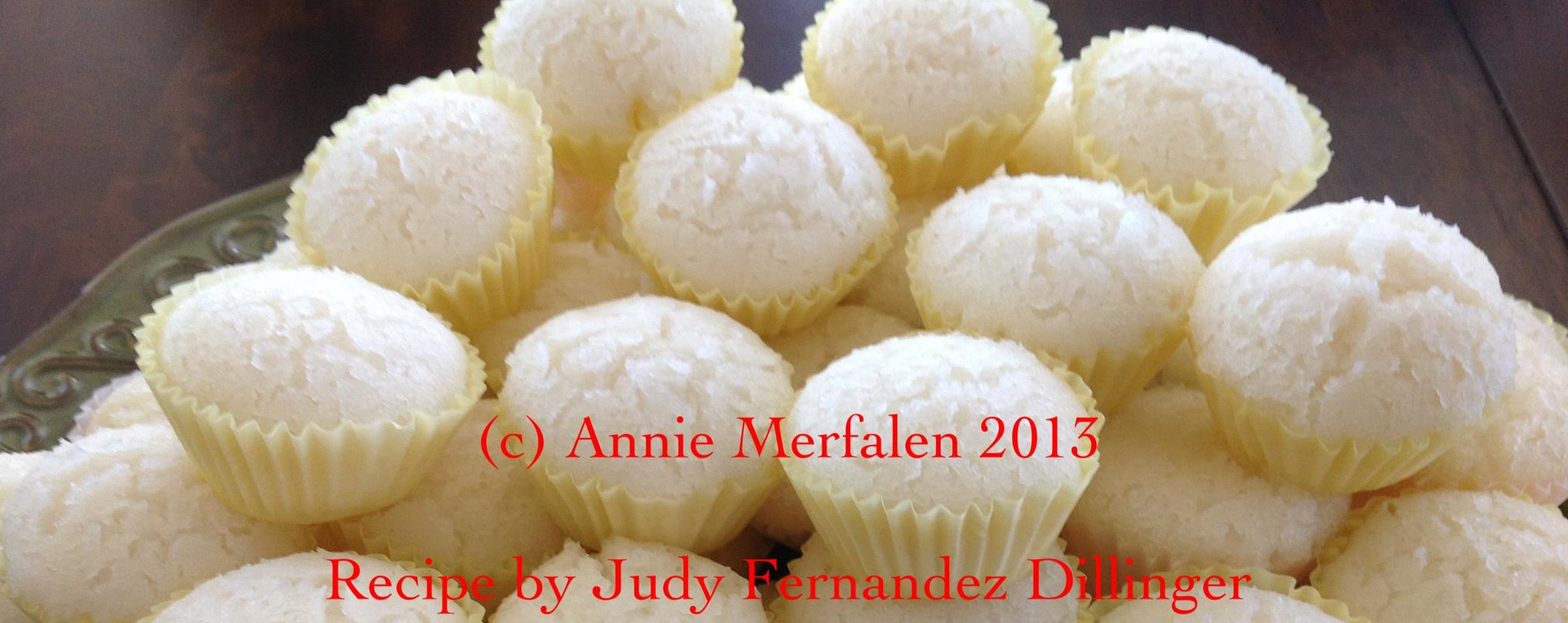
Potu is a sweet steamed rice cake that’s a Chamorro favorite. It’s traditionally made using sweet tuba, a Chamorro beverage made from fermenting (like wine) coconut juice. Rice is soaked overnight in the tuba then ground into a super-fine consistency the next day. The mixture is sweetened and steamed into these amazingly delicious rice cakes.
When I was younger, I usually only had potu when we went to parties or (I don’t mean to be morbid) at rosaries. My late aunt used to make potu as well. I remember those sleepovers at her house — Auntie Frances had the entire kitchen and dining room filled with tubs of soaking rice and pans of potu ready for delivery. Ahh…those were the good ‘ole days.
This is my friend, Judy Dillinger’s recipe. Being away from home, I definitely don’t have access to a lot of home-grown ingredients, tuba being one of them. Judy’s recipe makes use of readily available ingredients that you can find in almost any grocery store. It’s also quick and easy, using rice flour instead of soaking rice overnight.
If you’d like to try another of my friend’s Potu recipes, take a look at this one by my friend, Rose Camacho.
I’ve made both recipes and I will tell you they are both equally delicious and definitely tried-and-true.
Give Judy’s or Rose’s recipes a try. I think you’ll like them.
Here’s how to make Judy’s Potu.
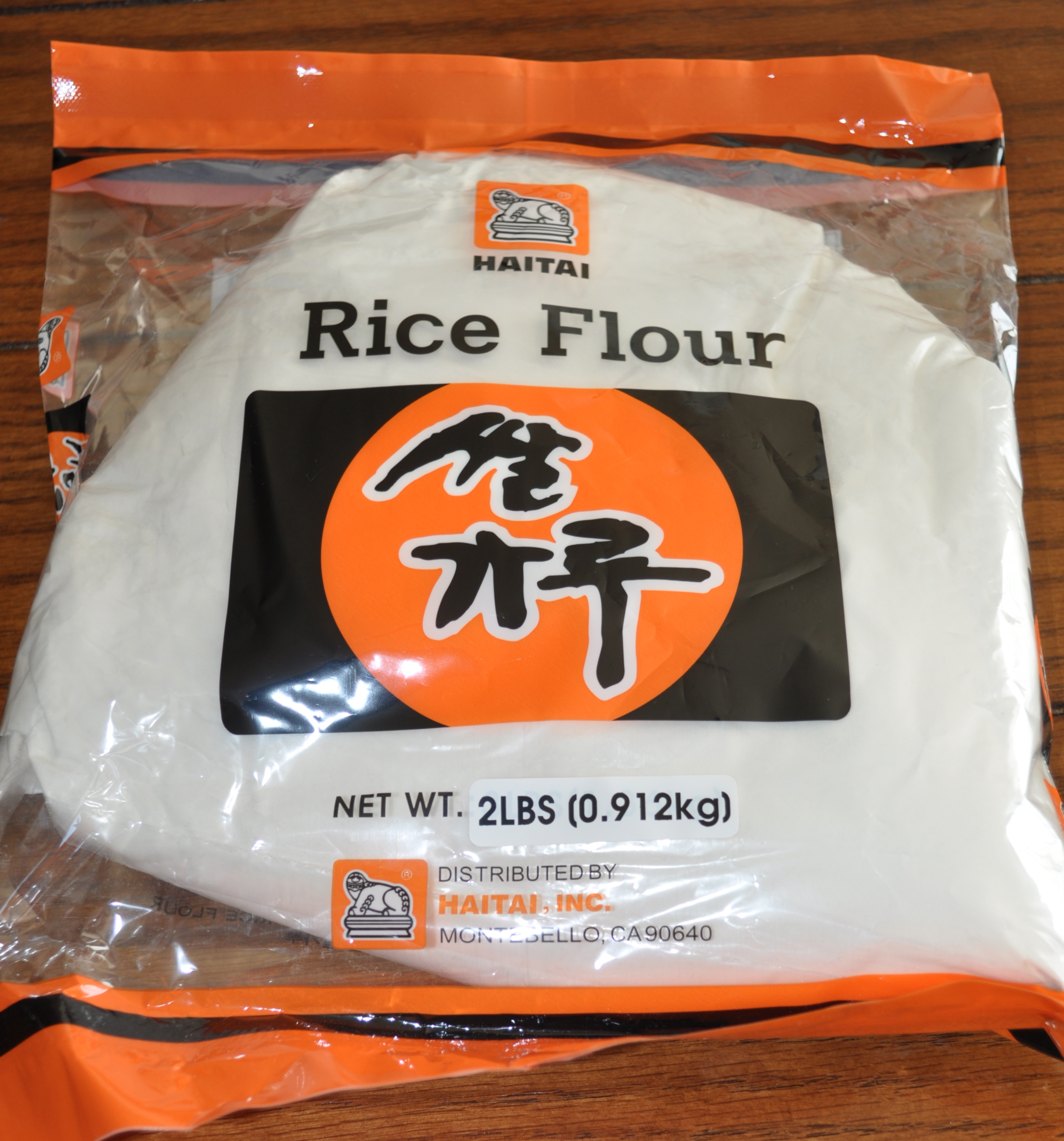 You’ll need to find rice flour that is NOT glutinous. The label will tell you whether it’s glutinous or not. The glutinous kind will NOT work for potu. Glutinous rice flour is made by grinding sweet rice, which is very sticky when cooked. The NON-glutinous rice flour (the kind you need for potu) is made by grinding short or medium-grain rice.
You’ll need to find rice flour that is NOT glutinous. The label will tell you whether it’s glutinous or not. The glutinous kind will NOT work for potu. Glutinous rice flour is made by grinding sweet rice, which is very sticky when cooked. The NON-glutinous rice flour (the kind you need for potu) is made by grinding short or medium-grain rice.
This is a photo of the brand of rice flour I used. There are many different brands; make sure the label states non-glutinous.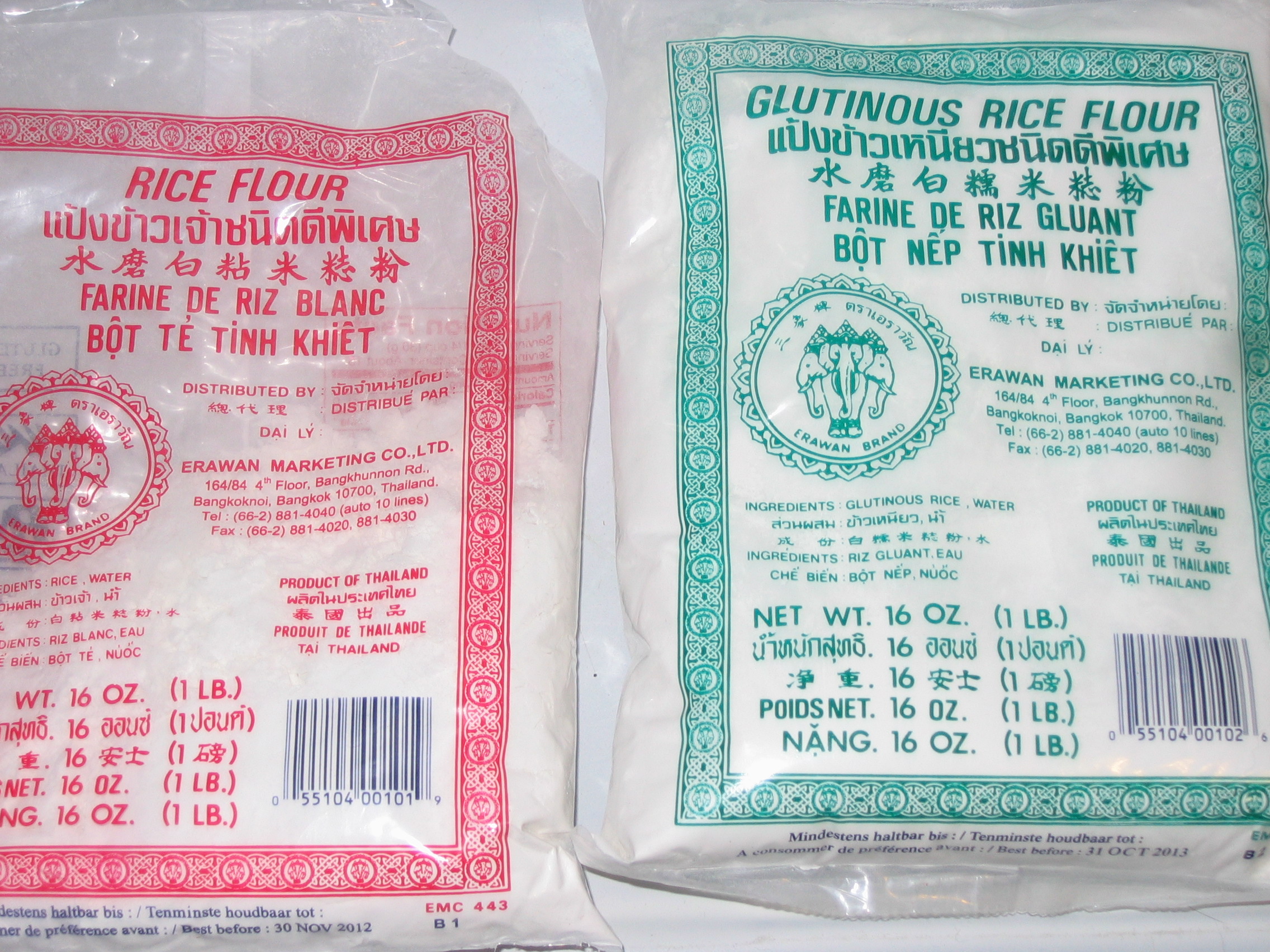
I’ve also used this brand of rice flour (the red bag, pictured on the right). Notice that the green bag clearly states “Glutinous.” If you’re familiar with mochi, glutinous rice flour is used to make mochi. Again, for potu, you want to use NON-glutinous rice flour.
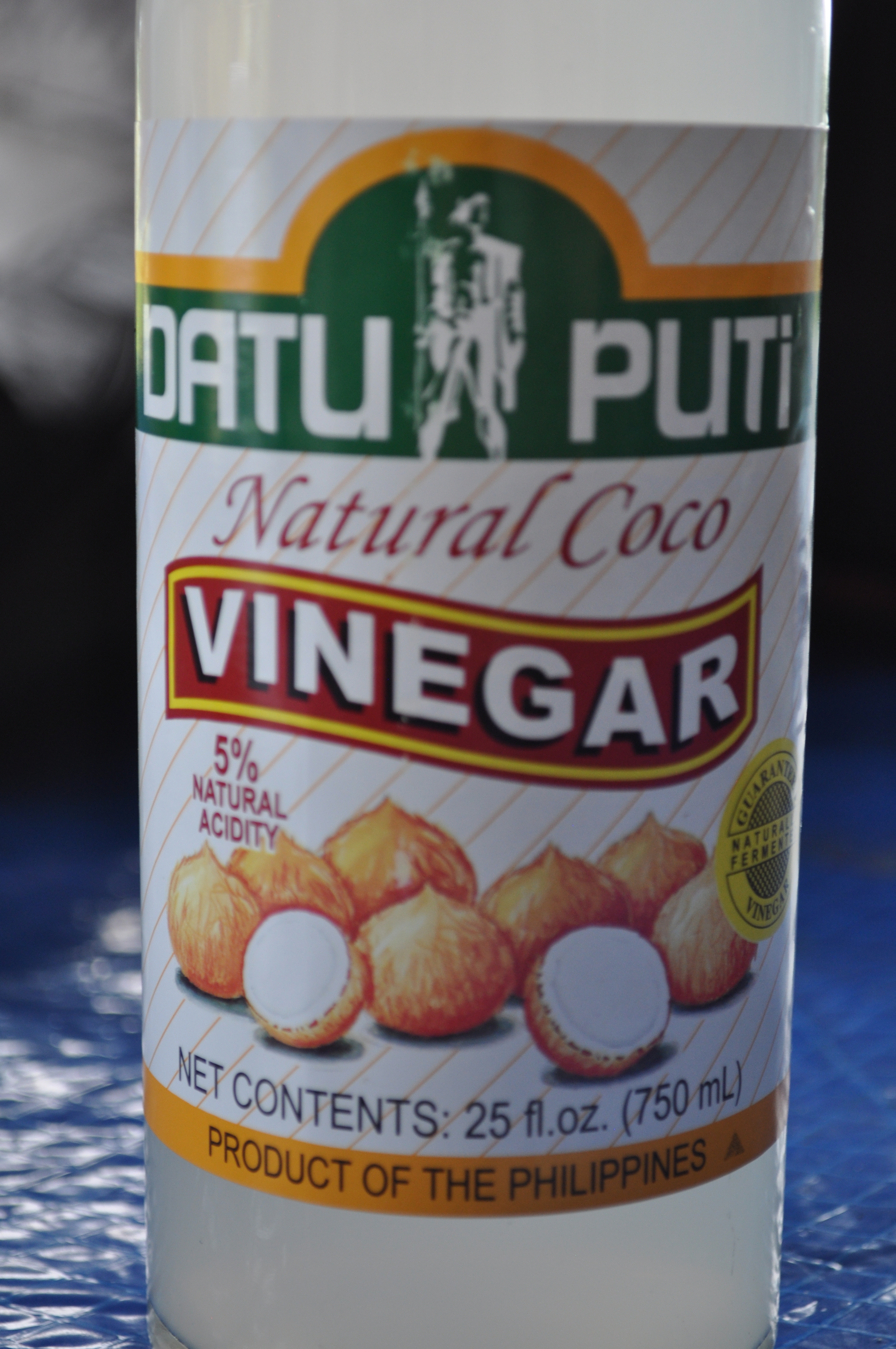 As I mentioned above, tuba is not available here in the states, unless you have a friend or family member visiting from home bring you some. An easy substitute for tuba in this recipe is coconut vinegar. You only need a little bit of vinegar. Judy’s recipe calls for four tablespoons mixed with enough water to make one cup of liquid. I actually cut the amount of vinegar in half because it’s quite pungent. This is the brand of coconut vinegar I use.
As I mentioned above, tuba is not available here in the states, unless you have a friend or family member visiting from home bring you some. An easy substitute for tuba in this recipe is coconut vinegar. You only need a little bit of vinegar. Judy’s recipe calls for four tablespoons mixed with enough water to make one cup of liquid. I actually cut the amount of vinegar in half because it’s quite pungent. This is the brand of coconut vinegar I use.
Mix the vinegar with enough water to make one cup of liquid. I only used two tablespoons of vinegar, but Judy’s recipe calls for four. It’s all up to you, really, on how much vinegar to use. Remember, a little goes a long way.
Mix the rice flour, sugar and baking powder with the vinegar-water mixture. Let the mixture sit for a few minutes — it will get very bubbly.
Pour the batter into molds, filling them almost to the top. I’ve used silicone molds, little glass cups and the silicone molds lined with mini cupcake paper liners, all with success.
Place the molds into your steamer basket before filling — it’s easier than trying to place full cups into the basket without spilling any batter.
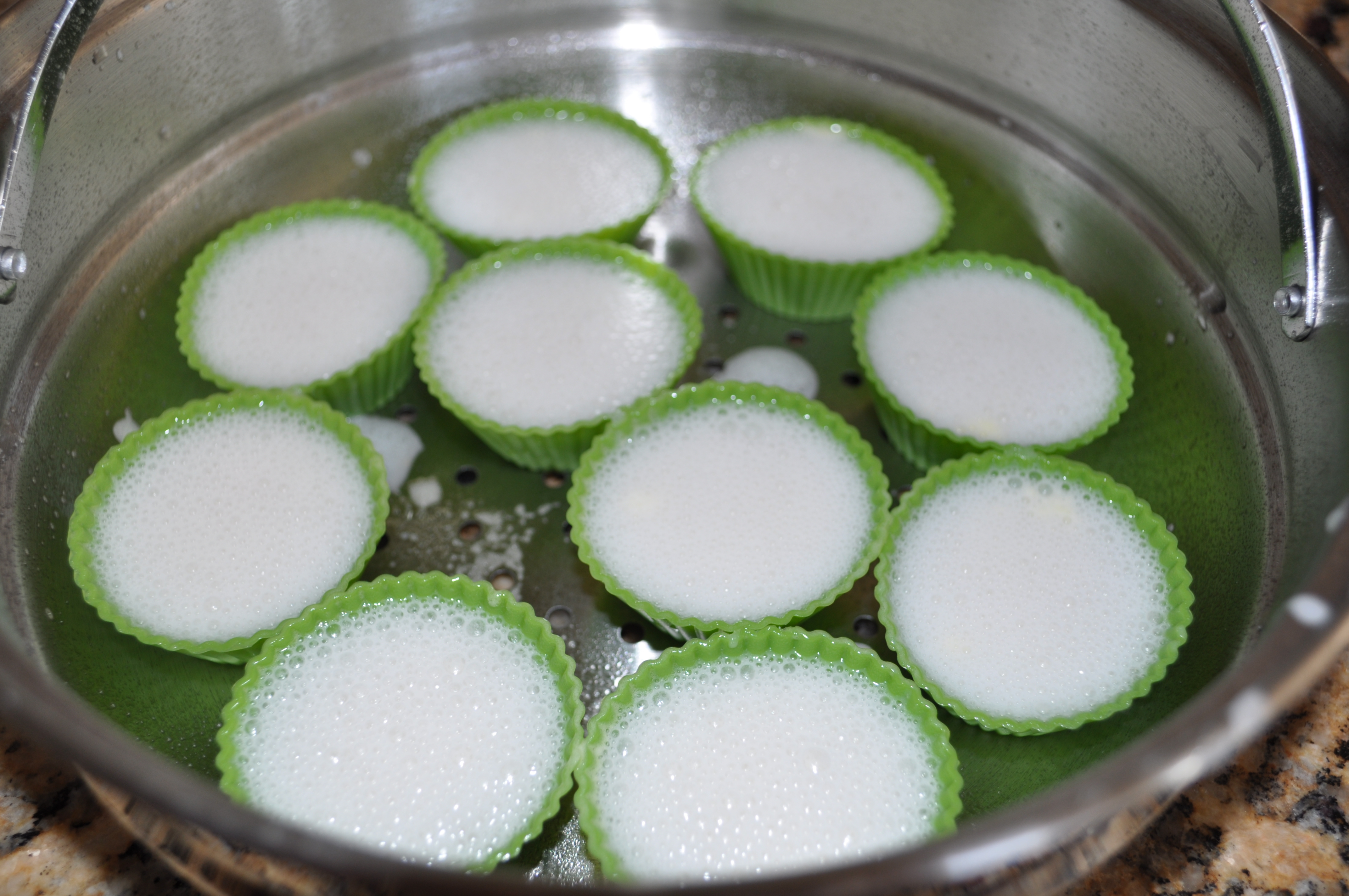 Place the steamer basket into the steamer. Place a clean kitchen towel or cheesecloth beneath the lid to keep the condensation from dripping back onto the potu.
Place the steamer basket into the steamer. Place a clean kitchen towel or cheesecloth beneath the lid to keep the condensation from dripping back onto the potu.
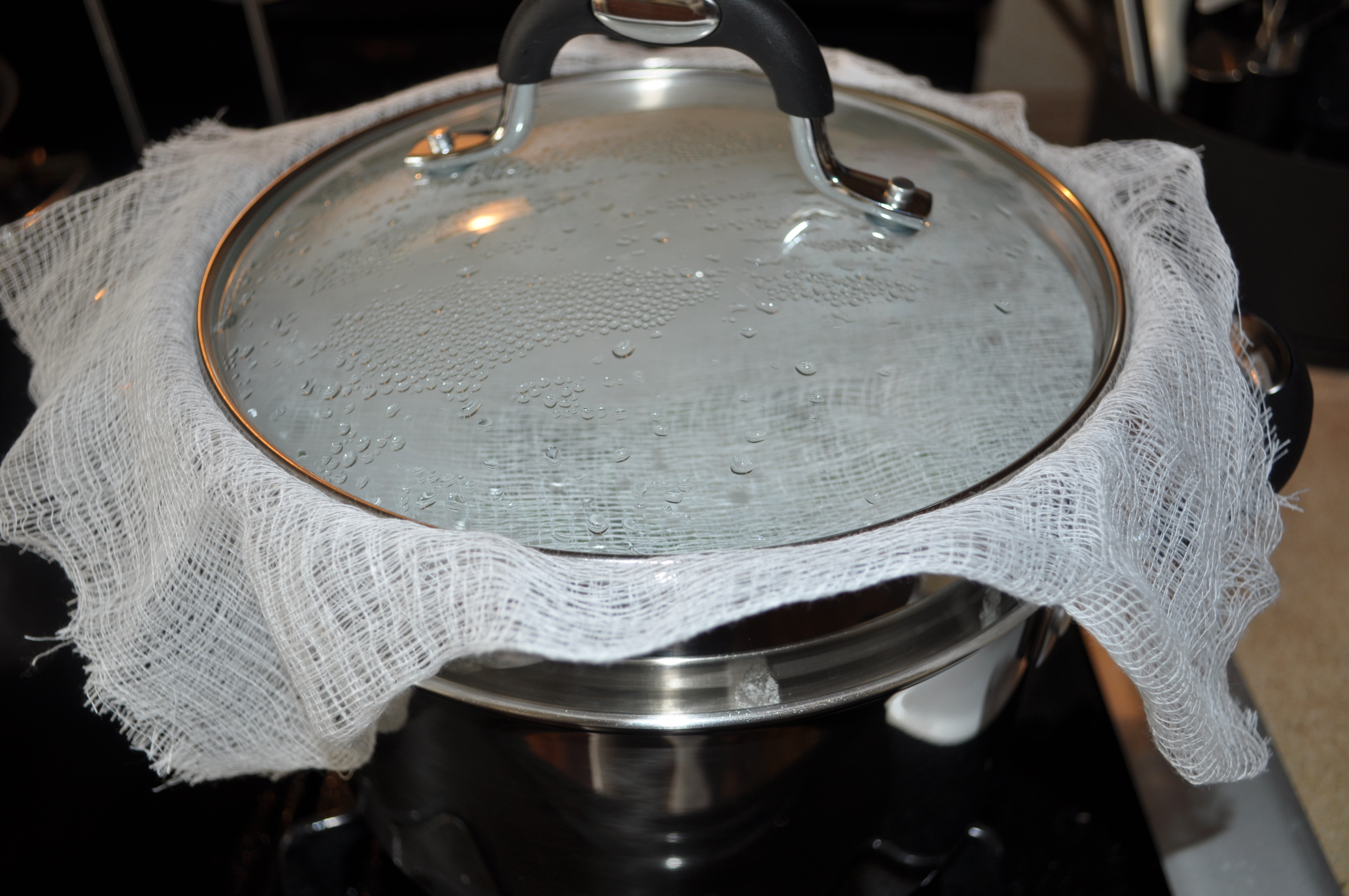 Steam for about 20 minutes. The tell-tale crack on top indicates the potu is done. Let the potu cool for a few minutes before removing from the molds. Serve and ENJOY! 🙂
Steam for about 20 minutes. The tell-tale crack on top indicates the potu is done. Let the potu cool for a few minutes before removing from the molds. Serve and ENJOY! 🙂
- 1 cup rice flour (make sure it's NOT glutinous rice flour)
- ¾ cup sugar
- 1½ tablespoons baking powder
- 4 tablespoons vinegar mixed with water to equal 1 cup of liquid (OR use 1 cup sweet tuba)
- Mix all ingredients in a bowl and let it sit for about 15 minutes.
- Pour the mixture into miniature molds and steam for about 15-20 minutes.

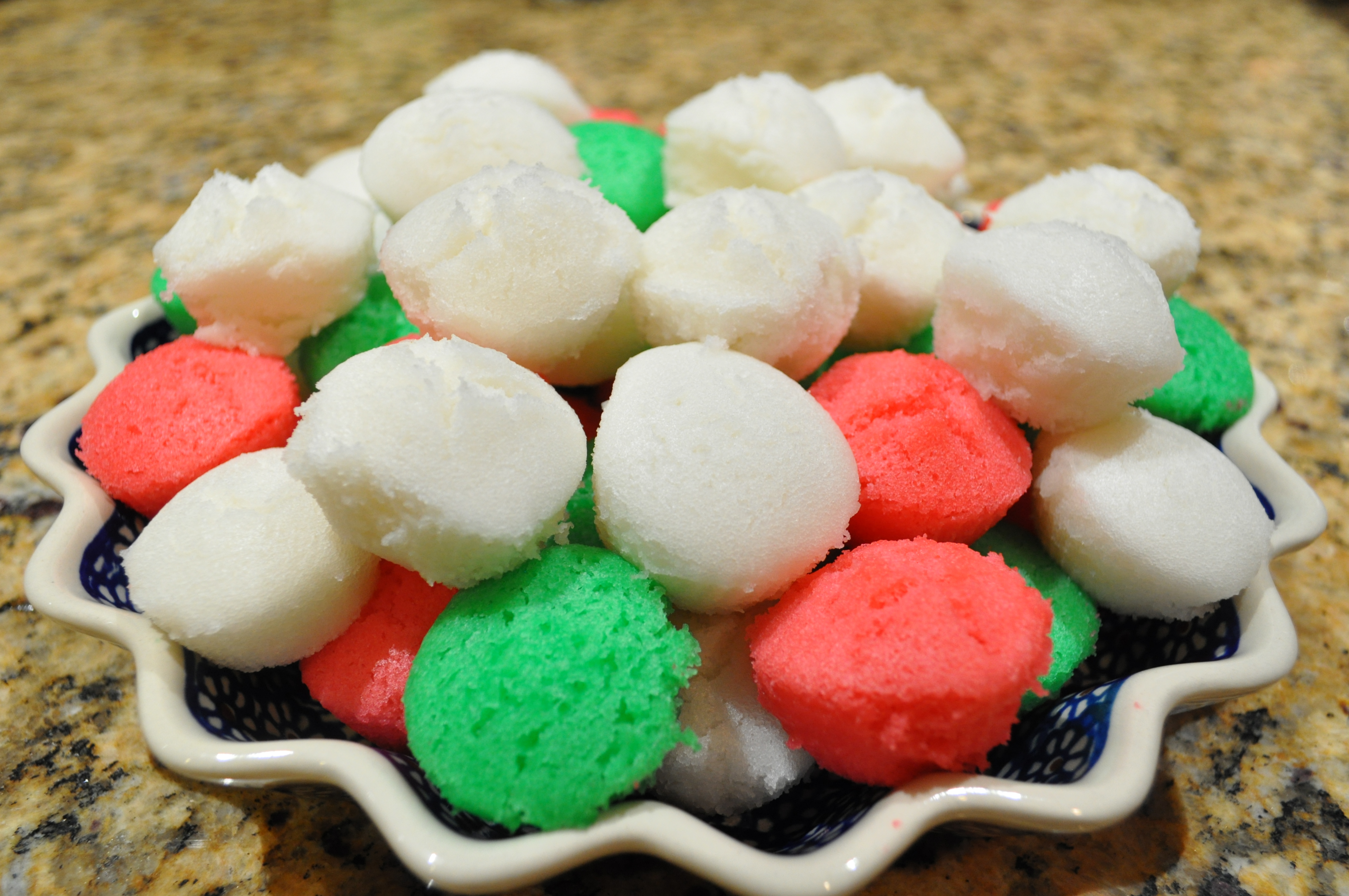
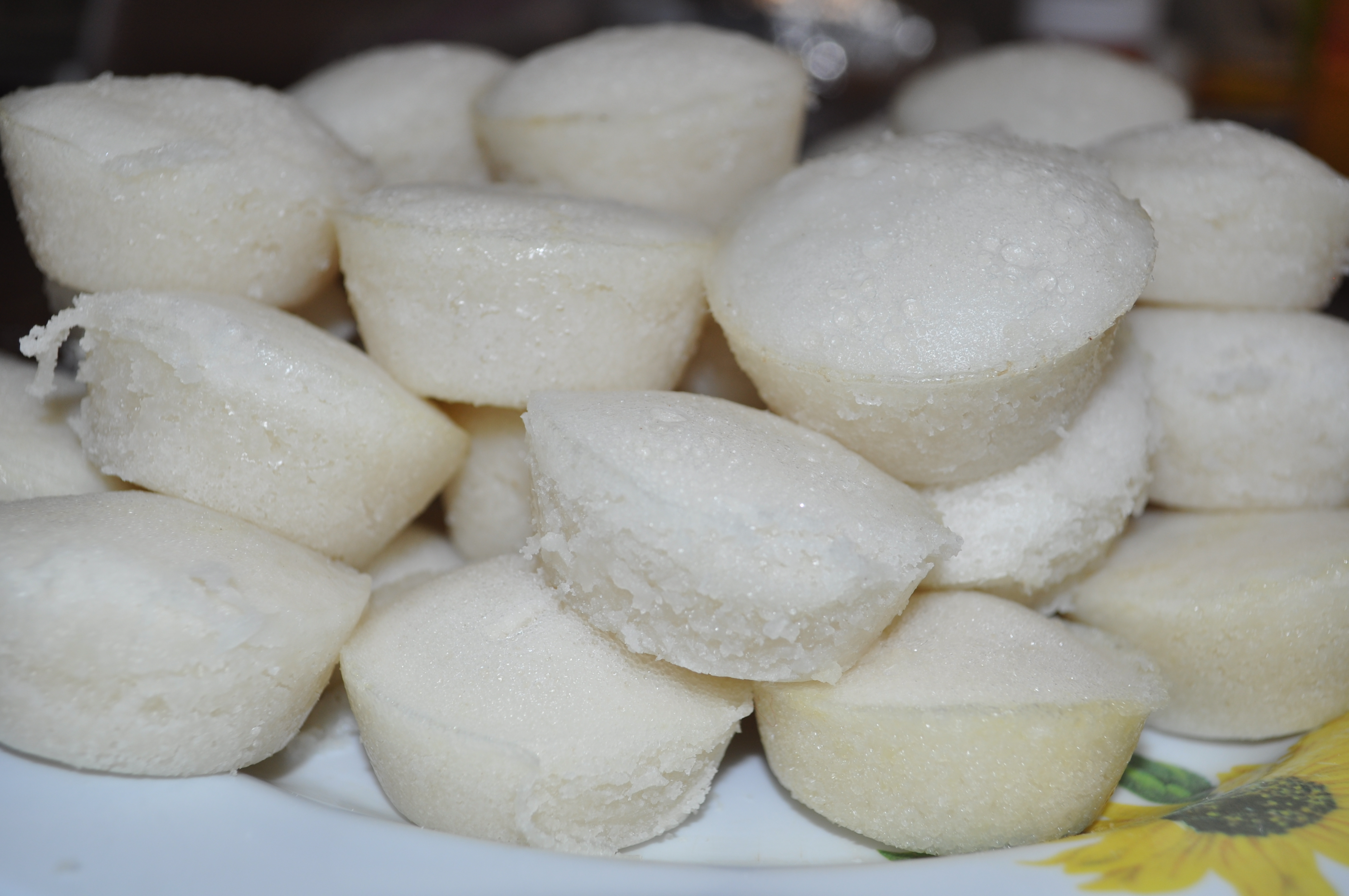
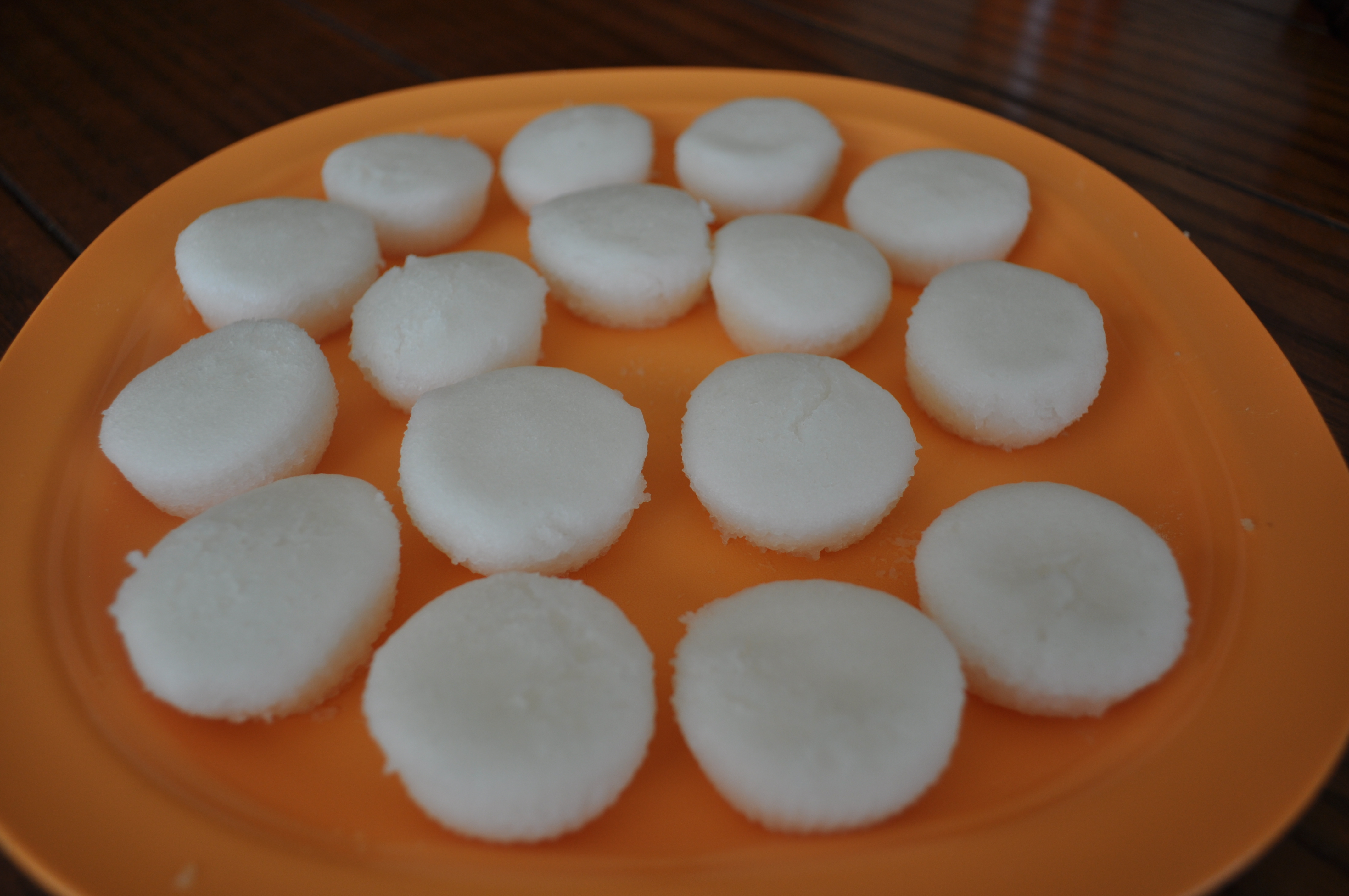
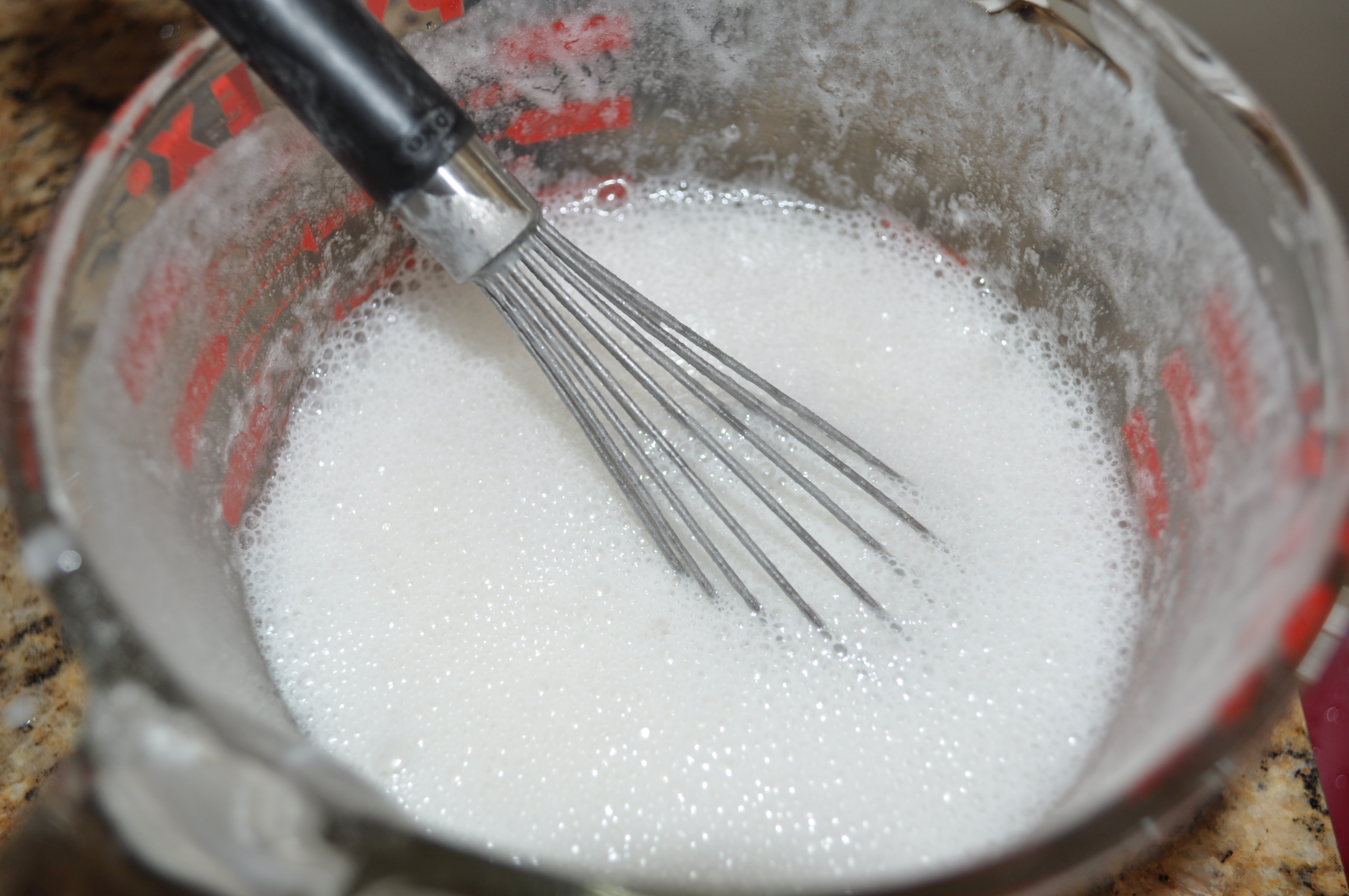

Do I need to wait until the water is boiling before I place the puto inside the steamer..
Yes, you do. Place the steamer basket in the steamer after the water has begun to boil.
Hi, for soaking the rice 4 Tbsp of Tuba with Water will do?
and the same water mixture for the recipe?
thank you.
If you’re using vinegar, then yes, follow the recipe for the amount of vinegar and water to use. If you’re using actual sweet tuba, you can use all tuba or dilute it with water. Use the total amount of liquid called for in the recipe.
For the tuba version, is this the tuba liquor or tuba vinegar (i.e. binakli)?
Use the tuba that you drink, not the vinegar.
How would you mail potu across the country?
I’ve never mailed potu before, but maybe you can put them in ziplock bags to help preserve the freshness.
I want some so bad but my friend that used to make it for me moved. Looking to find it premade. Any
Ideas where I can find it already made
Sorry, I don’t know where you can order these pre-made.
There’s a puto brand by White King. It’s found in the Asian markets. I plan to try it out today.
Annie, Si Yu’us ma’ase for sharing these Guam recipes with generosity!
I am looking forward to making potu using your recipe.
Potu is one of my favorite home food. I covet it whenever
I go home for a visit.
My grandma mailed me potu from Guam to Washington. She freezed it for 4 days and then sent it. And it came a week later, still cold and still delicious!
I am so grateful for this recipe! Thanks! Thank you for keeping our food culture alive!
Where can I get or buy the molds?
You can find them at any kitchen supply store, or try looking on Amazon.
I can’t find coconut or palm vinegar. Will regular or rice vinegar work..?
I think so. Palm or coconut vinegar is closer substitute for traditional tuba however.
Check Asian, Indian or Philipino stores, I found both. I make my Puto using coconut milk and they’re excellent!
Mine came out really dense and sticky. It was my first time trying, do you have an idea on how to fix it?
A couple questions for you:
– Did you make sure you did NOT use glutinous rice flour?
– Did you place a clean kitchen towel or cheesecloth beneath the lid to keep the condensation from dripping back onto the potu?
I tried doing it n it came out dense n sticky also. I used the red label rice flour n followed d directions to the “T”. Wonder what went wrong. Do I need to wait for water to boil before steaming the puto? Can u open d cover while steaming to chk if it’s done?
I don’t recommend opening the lid during steaming, but it wouldn’t hurt if you did. Try using less liquid in your batter the next time you give this a try (hopefully, you do).
Hello Thank you for sharing this, may I have the full instructions using Tuba that is being soaked overnight? we have rich sources of tuba in our place, tuba is more healthier than Yeast. Thank you.
Instead of the vinegar- water mixture, use the same amount of tuba.
I would love to make this for an upcoming party. How long in advance can I make/store it? Or does it not keep?
Hi Kathleen! Sorry for just getting back to you now (your message went to my spam folder for some reason). This will only keep for a few days if made ahead, unfortunately. It’s best to make it fresh.
I did exactly what it says but it’s hollow in the bottom, what did I do wrong? Should I stir the mix after it sits for 15 minutes?
Joni, stirring it sounds like it’ll help.